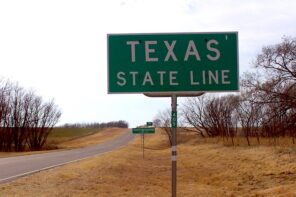It’s not every day that a Baptist pastor based in Texas urges his congregants to be kinder and gentler when thinking or arguing about religious liberty. But that’s exactly what Mark Wingfield, an associate pastor at Wilshire Baptist Church in Dallas, did in his Monday column for the Dallas Morning News. Despite the conservative and legal hand-wringing, it’s not actually hard to tell the difference between “religious persecution and selfishness,” he writes.
He asks readers (particularly Christians who may be quick to side with “religious” business-owners who don’t want to serve LGBTQ people) to walk a mile in someone else’s shoes. It’s a simple, classic, and Biblically informed frame, but Wingfield articulates it powerfully:
Imagine this scenario: An evangelical Christian couple is planning their wedding and wants a cake for their reception from the best bakery in town. So they visit the Jewish baker to make arrangements but are greeted with bad news: “Sorry, we don’t bake cakes for Christian weddings.” Can you imagine the outcry in the Christian community?
Or how about this: You are involved in a horrific automobile accident near a small town and rushed by ambulance to the nearest hospital. You are taken to an emergency room to be treated by a doctor who first takes down vital demographic information, only to conclude: “I’m sorry. I’m a Muslim and my faith will not allow me to do the procedure you need to live. You’ll have to wait until we can transport you to a larger hospital with other doctors.” Again, can you imagine the outcry in the Christian community? …
Contemporary calls for religious freedom legislation or presidential executive orders or city ordinances mostly run afoul of the First Amendment because they forget the Golden Rule. Most often, these are attempts to prevent me from having to do something for you that I don’t want to do while still demanding that you be required to do that same thing for me. There’s another simple word for this: Selfishness.
Be sure to read the full op-ed at the Dallas Morning News. It’s an important examination of the root issues permeating today’s cultural conversation about “religious freedom,” and to what extent that bedrock American principle should be used as a shield or a sword.
The editorial is the latest addition to Wingfield’s impressively progressive publications, including a 2016 post in Global Baptist News that went viral, where the associate pastor sought to better understand the issues faced by transgender people—beyond the hysterical bathroom debate and overly simplified headlines. His follow-up piece made clear his gratitude for the outpouring of kindness, support, and offers of friendship that he received from trans people around the country.
“Tears came to my own eyes as I read these lines over and again and realized that I was hearing from strangers who were willing to open their lives to me in much greater proportion than they feared the church would be willing to open itself to them,” Wingfield wrote. “This is painful and convicting.”
If we’re lucky, Wingfield’s arguments will encourage others—and, dare we hope, religious leaders—to embrace that painful conviction, which itself requires a deep, compassionate look at the harm done by exclusionary religious perspectives that drive people further away from organized religion, even as they desperately seek a genuine relationship with a higher power.




